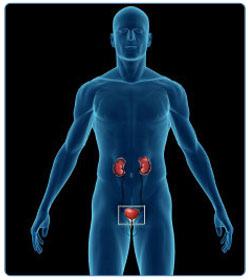Q: Which doctor do I consult?
A: A general physician or an internist or a family physician can be consulted.
Q: Which Organs can be affected by Chlamydia?
A: Chlamydia is the most common sexually transmitted disease (STD). It can infect the penis, vagina, cervix, anus, urethra, or eye.
Q: Is it a common infection?
A: Yes, it is a common infection. But because the signs of chlamydia often go unnoticed, an individual can develop serious health complications before recognizing that they are infected.
Q: How is it transmitted?
A: It may be transmitted during vaginal, anal, or oral sex and can be transmitted even if there are no signs or symptoms of infection. Chlamydia can also be passed from an infected mother to her newborn during delivery.
Q: What are the symptoms?
A: The symptoms may vary from an abnormal discharge (mucus or pus) from the vagina or penis or experience of pain while urinating.
Q: Do they appear soon after infection?
A: Symptoms usually appear within 7 to 21days after being infected. Usually it goes unnoticed.
Q: Can a pregnant woman pass on the infection to the baby?
A: Yes, it may be passed on to the baby by the infection of the birth canal. It is very important for pregnant woman to have a screening test done.
Q: Does having the infection cause harm to the newborn baby?
A: Yes, the infection when passed to the newborn may cause serious eye infection or pneumonia. It may also lead to premature delivery and low birth weight babies.
Q: Are there any complications if left untreated?
A: The complications If Left Untreated can be, ectopic (tubal) pregnancy, pelvic inflammatory disease in woman, infertility in men and women, and it would lead to an uncontrolled spread.
Q: How is it diagnosed?
A: It is diagnosed in the laboratory, where a swab from the vaginal, rectal or urethral opening is taken and culture tests will be done.
Q: How is it treated?
A: The infection can be treated completely by antibiotics prescribed by your doctor.
Q: If infected and treated for chlamydia infection can there be a recurrence of infection?
A: Yes, the treatment is not for lifetime, you can get infected repeatedly if you do not take careful precautions.
Q: How can I protect myself?
A: You may follow some simple methods to try and protect yourself.
- Avoid multiple sexual partners.
- Avoid prostitutes.
- If there is discharge from the penis or vagina, consult the doctor and get a test done.
- Inform partners about the condition and advice them to get a test done.
- Use condoms.











